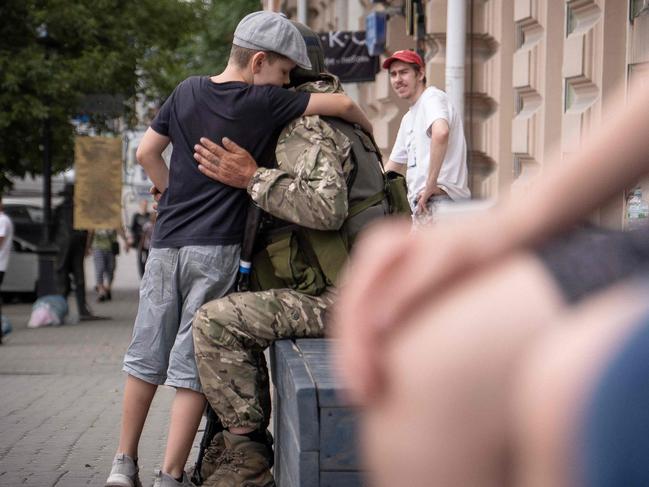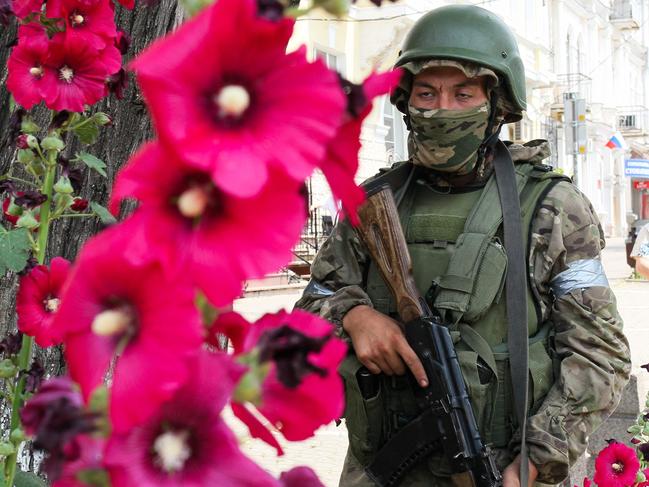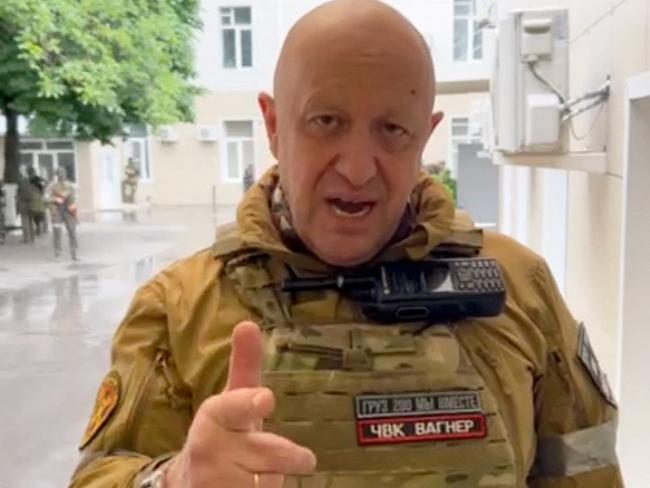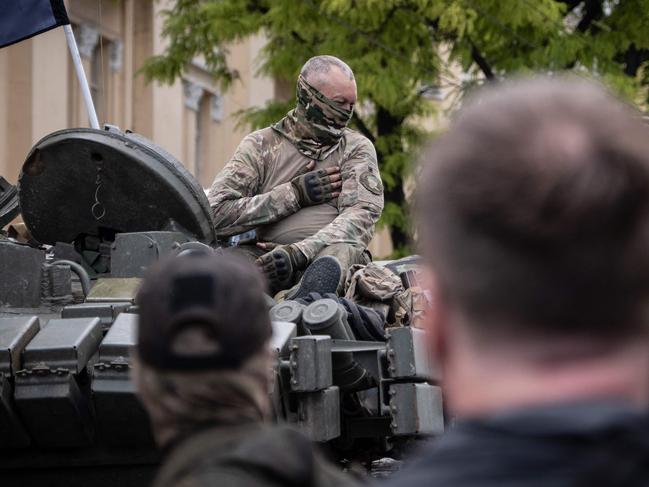Analysis: Vladimir Putin’s political future on the line as mercenaries bear down
Russia has not been challenged in this way since the 1991 fall of the Soviet Union. Here’s what it could mean for Vladimir Putin.
World
Don't miss out on the headlines from World. Followed categories will be added to My News.
The beginning of the end for Vladimir Putin’s political stability began last September in the Kharkiv province of Ukraine, with Moscow’s worst military defeat since its attempted capture of capital Kyiv at the outset of the war.
The defeat of thousands of Russian forces who were either killed by Ukrainian forces or surrendered, leaving behind a stockpile of ammunition and weapons, exposed the Kremlin to severe criticism that it was incapable of running a war.
The fleeing of Russian troops not only allowed Ukraine forces to recapture lost cities in the province but it flagged significant weaknesses in the Russian military already suffering severe losses in the face of NATO-armed Ukraine forces.
Enter the Wagner group, Putin’s private army of mercenaries led by Putin’s confidant and long-time personal friend Yevgeny Prigozhin.

Prigozhin and his Wagner forces, made up of hard core combatants, freed prison criminals and other society-shunned Far Right extremists and neo-Nazis, to not just enter the battlefield but take over the fight for the embarrassed Russian forces.
This was a significant oversight by Putin desperate to have someone, anyone, to capture Ukraine on behalf of Russia.
He personally called on Wagner combatants, many of whom were running private militia operations in Syria and Africa and elsewhere offering minerals and resources to be exploited, to return to Russia to conquer Ukraine whom he accused Russian regular forces of clearly incapable of doing.
The size of his Wagner forces were not insignificant, 10,000 to 25,000 battle-hardened troops, who quickly proved why they are feared and begrudgingly respected by the Kremlin.
They proved their mettle in Bakhmut – the eastern Ukraine city which has seen the fiercest fighting of the Ukraine War since the Russian invasion in February 2022 – and which was captured largely by Wagner.

Putin allowed Wagner to play off against his own Russian forces to capture the beleaguered city in May in what was perhaps another oversight, allowing the Wagner force to raise the Russian flag for the world to see.
Bakhmut was not particularly strategic but it was symbolic that Wagner was credited with its hard-fought conquest with minimal help from regular forces.
It was after this battle that Prigozhin began condemning the Kremlin for lying about the nature of the war and Russia’s huge losses.
He also clashed with the Kremlin, accusing them of failing to supply armaments and leaving his forces exposed, as they fought to captured the region.
Noting the speed and success of Wagner since they were tasked with control since Kharkiv, the mercenary group was last month asked by the Kremlin to sign contracts with the Russian Defence Ministry before July 1.

But it was too late.
The attempt to bring Wagner under direct control of Moscow was not only resisted but Prigozhin took to social media to repeat criticism of Putin’s ally and chief of general staff Valery Gerasimov and Defence Minister Sergei Shoigu of lying about Russia’s war and Ukraine’s gains.
“They are misleading the Russian people and if it keeps on like this we’ll be left without the most important thing: Russia,” he tweeted.
His earlier addresses laden with expletives discrediting the Russian army were tolerated but his booming popularity could not.
Putin and his regular forces were incensed and again insisted Wagner sign contracts, effectively tying loyalty to the Kremlin, and they continued to refuse as late as two days ago.
In the West analysts had long predicted the mandate and trust Putin had handed Wagner and its bruising Prigozhin, the man they called “Putin’s chef” such was their closeness, would lead to disaster.

And now it has.
Putin allowed Wagner to gain popularity, win over regular Russian forces and gain huge notoriety and wealth – courtesy of sanctioned their war in Ukraine and extensive transnational criminal exploitation notably in Africa including Libya, Mozambique, Mali and Sudan – and he would never be able to put the genie back in the bottle.
Ordinary Russians have watched on for weeks as Prigozhin was apparently allowed to openly criticise and taunt the Kremlin and the Russian Defence Ministry and for that he gained greater popularity and turn significant elements of the Russian military, at the expense of Putin.
Nobody wants to yet call it a civil war but Russia has not been challenged in this way for decades, certainly not since the 1991 fall of the Soviet Union which ironically created or reinstated the nation Of Ukraine.
Events are moving fast and while Wagner descending on Moscow is highly unlikely, it would be astounding if Putin can politically survive this turmoil.



